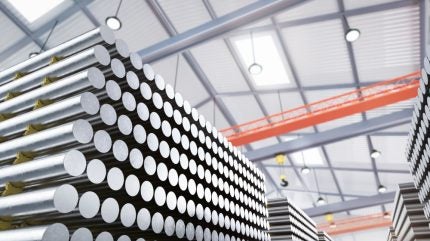
The doubling of US steel and aluminium import duties to 50% under President Trump is significantly increasing costs for metal packaging across food and beverage industries.
Reuters reports that cans are now more expensive, prompting companies to consider switching materials amid uncertainty over tariffs.

Discover B2B Marketing That Performs
Combine business intelligence and editorial excellence to reach engaged professionals across 36 leading media platforms.
Metal tariffs raise packaging costs
US firm Pacific Coast Producers, which supplies canned fruit and tomatoes, says the cost of specialty steel has risen by about 6%, leading to an estimated $40 million extra expense next year.
With tariffs rising from 25% to 50% on 4 June 2025, can prices may increase by as much as 24% by next spring.
Retailers and consumers could face food price increases in the range of 9–15% on canned goods, according to industry estimates.
Exploring alternative packaging materials
Faced with higher can costs, some producers are reviewing options like aseptic cartons (such as Tetra Pak), foil pouches, glass bottles or plastic.

US Tariffs are shifting - will you react or anticipate?
Don’t let policy changes catch you off guard. Stay proactive with real-time data and expert analysis.
By GlobalDataHowever, alternatives bring challenges: glass is heavier to ship, pouches require new production lines and materials like plastic carry different logistical limitations.
Major brands—such as Coca‑Cola and PepsiCo—are able to shift more easily thanks to diverse packaging strategies.
Impact on beverage and beer markets
Aluminium-heavy segments, especially beer producers, may struggle more. Around 64% of US beer sales in 2023 were in cans and many breweries have already invested heavily in canning lines.
However, recycled aluminium (about 71% of content) is not subject to tariffs, which somewhat buffers the impact for large brewers like AB InBev.
Outlook and industry response
Packaging firms remain cautious. The cost of switching materials and revising supply chains is significant, and changes in tariff policy could occur rapidly. European metal and packaging groups are also considering counter‑measures, such as restricting scrap exports, in response to the US policy.
With tariffs now subject to legal review and potentially staying in place during appeals, companies face more uncertainty.
For now, the packaging industry is bracing for higher metal costs and weighing long-term shifts in material use—though most remain wary of making irreversible investments amid policy volatility.
Navigate the shifting tariff landscape with real-time data and market-leading analysis. Request a free demo for GlobalData’s Strategic Intelligence here.





